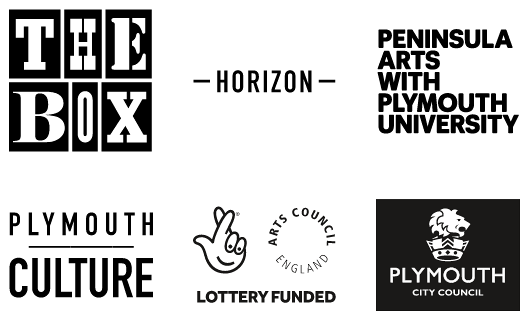September 22–December 5, 2017
c/o The Arts Institute, University of Plymouth
Drake Circus
Plymouth PL4 8AA
United Kingdom
T +44 1752 584980
mail@theatlantic.org
The Atlantic Project is a pilot for a new international festival of contemporary art, taking place in public contexts and outdoor locations across Plymouth, UK, from September 28, 2018. Participating artists include Ursula Biemann, Liu Chuang, Nilbar Güreş, Ryoji Ikeda, Melanie Jackson, Kiluanji Kia Henda, Marie Lund, Wang Shang, Hito Steyerl, Tommy Støckel and SUPERFLEX, amongst others. Curated by Tom Trevor, the project has been developed as a partnership between The Box and Plymouth University, hosted by Peninsula Arts, in the lead-up to the Mayflower 400 anniversary in 2020. The Atlantic is part of the Horizon programme, led by Plymouth Culture, supported by Arts Council England and Plymouth City Council.
Inaugural events:
Elmgreen & Dragset with Lukas Wassmann, a good neighbour
September 22–November 12, 2017, Civic Centre hoardings, Plymouth
In partnership with the 15th Istanbul Biennial and Urban Splash, the Atlantic Project presents Elmgreen & Dragset’s international billboard project on the theme of a good neighbour in sites across Plymouth. The billboard posters incorporate photographs by Lukas Wassmann and design by Rupert Smyth, along with questions about the concept of “a good neighbour.” A series of related performances and events include projects by Beyond Face and Fotonow, with Devon & Cornwall Refugee Support, exploring questions of co-existence and neighbourliness in Plymouth specifically.
SUPERFLEX, FREE BEER v 6.0 (the Atlantic brew)
October 2, 2017–ongoing, launched at Tate Modern, London
As part of the Atlantic Project, SUPERFLEX is collaborating with the Plymouth-based Real Ideas Organisation to develop a community-owned brewery in Devonport, producing FREE BEER. All profits from this social enterprise will be returned to the community, in one of the most deprived boroughs in the UK. FREE BEER is a beer which is free as in “free speech,” not in the sense of “free beer.” FREE BEER version 6.0 (the Atlantic brew) is an “open source beer” based on classic ale brewing traditions but with “added real ideas.”
Tommy Støckel, Plymouth Rock 24-HR Game Jam
October 21–22, 2017, Thinqtanq, Plymouth
Taking the Plymouth Rock in Massachusetts as the starting point, Tommy Støckel is developing both a physical and a virtual set of sculptures. The Plymouth Rock today is reputedly a fraction of the size of the “original” first footing of the Pilgrim Fathers, eroded by souvenir-hunters, with a comic history of destruction caused by numerous relocations and then social reconstruction as a symbol of “freedom.” Støckel proposes to determine the possible further erosion processes by developing a mobile app, enabling users to generate the shapes and sizes of the rock’s future fragments.
Atlantic Dialogues
A series of public talks and interdisciplinary discussions at Plymouth University, organised in collaboration with PU Fine Art:
Atlantic Dialogue #1: Lars Bang Larsen, “Charlotte Johannesson’s Cyberfeminist Textile Punk”
September 21
Atlantic Dialogue #2: Tommy Støckel, in conversation with Michael Straeubig, “Plymouth Rocks”
October 24
Atlantic Dialogue #3: Nilbar Güreş, in conversation with Cüneyt Çakirlar and Roberto Kulpa, “Trans-Atlantic”
November 14
Atlantic Dialogue #4: Melanie Jackson, in conversation with Esther Leslie, “Milk”
December 5
Future events:
Atlantic Project: PROLOGUE (‘After the Future’)
Opening: September 28, 2018
Artistic Director: Tom Trevor
Plymouth is a city built upon visions of the future. As a deep-water port, facing the Atlantic Ocean, its history is bound up with maritime exploration, in pursuit of the unknown worlds lying over the horizon. As the largest naval base in Western Europe, Plymouth was bombed extensively in WWII and the subsequent city architecture could be said to reflect a succession of post-war visions of the future. With the acceleration of globalization and the prolonged impact of austerity, however, the century-long obsession with the concept of progress has ground to a halt. Without a clear vision of the future or a shared belief in the continual transformation of society for the better, the question arises, how will the role of the artist function and change—drifting in the wake of utopian imaginaries—after the future?



